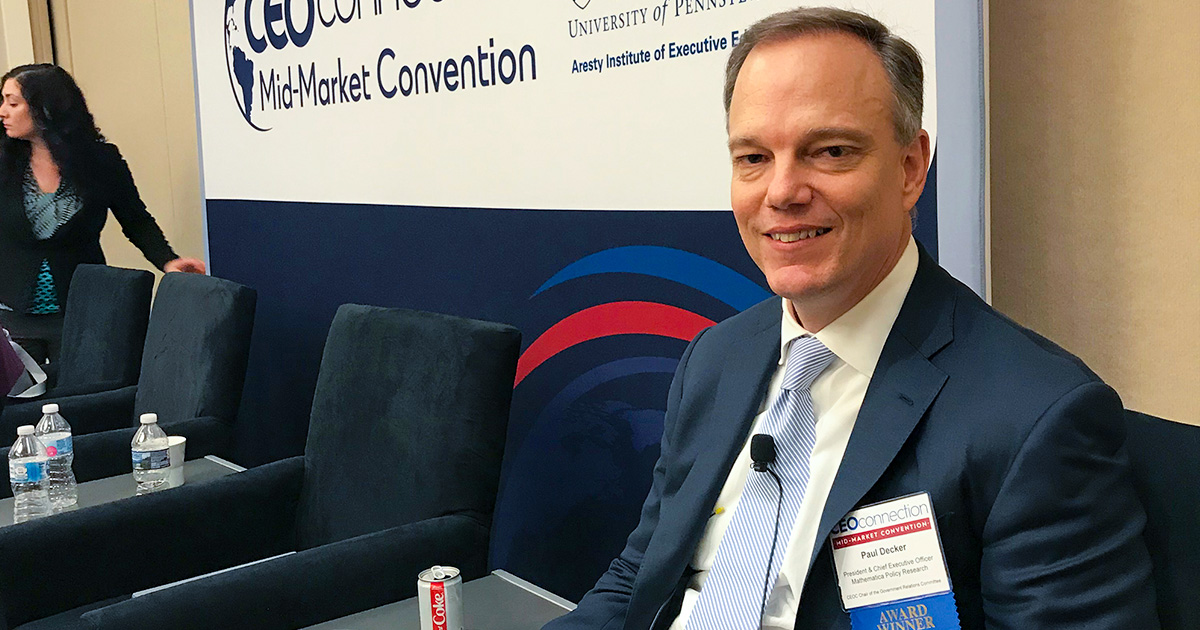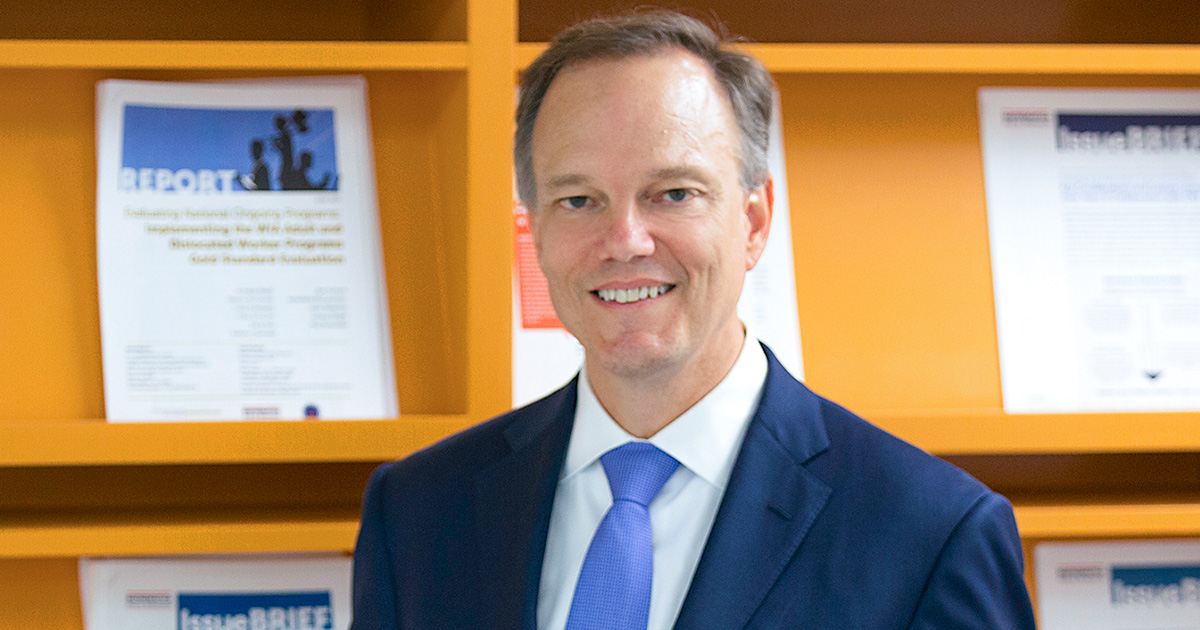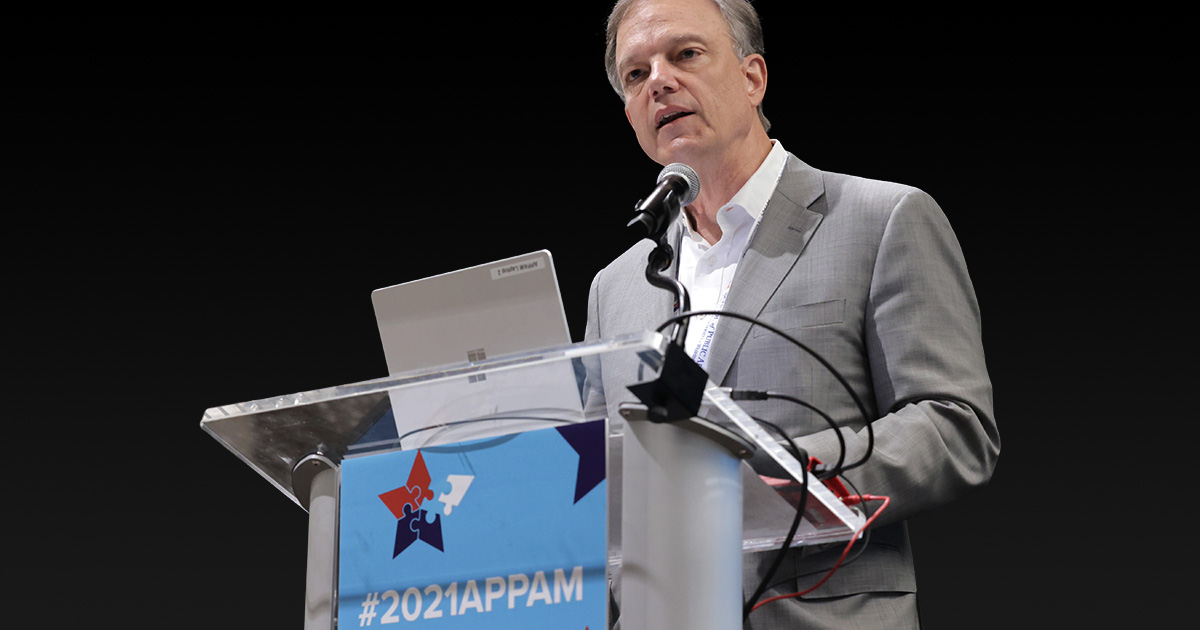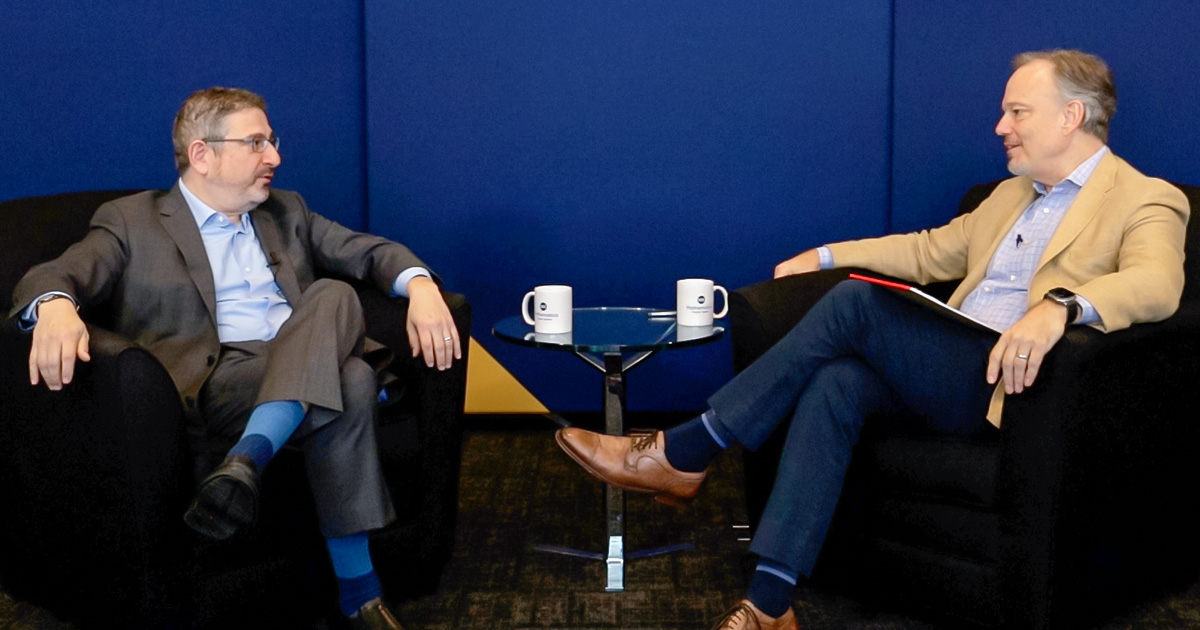President and CEO Paul Decker
Mathematica President and CEO Paul Decker is a nationally recognized expert in policy research, evaluation, and data analytics. With specialized expertise in education and labor policy, Paul has worked for more than three decades to improve public well-being through the use of data and evidence.
As chief executive of Mathematica since 2007, Paul has overseen the development of Mathematica as a company uniquely positioned to use data science, social science, and digital innovation to help uncover evidence that improves policies and programs and helps drive impact. Under his leadership, Mathematica supports data-driven decision making for private- and public-sector organizations, providing expertise in end-to-end analytics, a deep understanding of policy context, and a strong foundation of consequential research and evaluation.
In 2018, Paul was honored as CEO Connection’s Mid-Market CEO of the Year. He has since led Mathematica to recognition as the National ESOP Association’s ESOP of the Year Award for the New York/New Jersey region.
Expanding our work to improve public well-being
Paul holds a Ph.D. in economics from Johns Hopkins University and serves as chair of development on the board of advisers of the Thomas Jefferson Public Policy Program at the College of William and Mary, his undergraduate alma mater. After joining Mathematica in 1988 as a researcher focused on education and labor policy, Paul served in multiple project and leadership roles before eventually being named president and CEO in 2007. Since then, he has expanded and diversified the company’s operations and maintained its commitment to rigor, objectivity, and improving public well-being by:
- Strengthening data analytics capabilities across the organization to better support effective policy and program development decisions through sophisticated data management and analytics, predictive models, and effective use of artificial intelligence.
- Launching an enterprise focus on commercial health and life sciences, in which data scientists and social scientists collaborate to improve efficient, cost-effective care.
- Expanding Mathematica’s expertise and work to include behavioral insights to improve program design and new methodological strategies, such as the application of Bayesian statistical methods to social program evaluations.
- Launching Mathematica Global, which offers end-to-end measurement, evaluation, research, and learning (MERL) services to accelerate global impact.
“Evidence-based policymaking is part of our government’s promise to us as a steward of our collective resources—to invest in what works and fix what doesn’t.”–The True Promise of Evidence-Based Policymaking

Advancing data and evidence in public policy
Paul is committed to supporting effective leadership in agencies and organizations that serve the public by ensuring decision makers have access to the highest quality data, evidence, and analytics.

“We want to make sure the evidence is as useful and as informative as possible to those who are going to use it – policymakers and other decision makers.” –A conversation with Moody’s Chief Economist Mark Zandi
A past president of the Association for Public Policy Analysis and Management, Paul has co-chaired the organization’s strategic planning committee, served on its policy council, and is a member of the editorial board for the Journal of Policy Analysis and Management. Paul writes and speaks regularly on trends in the policy research field, including the emergence of Big Data and its impact on public program evaluation and management. Paul is a Trustee of the Committee for Economic Development where he is co-chair of the subcommittee on labor force participation, and has testified before Congress, served as an expert adviser to both the U.S. and Canadian governments, and published widely in peer-reviewed journals.
“Data are critical to developing effective policies and implementing successful programs.” –Celebrating five years of The Evidence Act

Championing the power of employee ownership
“Mathematica employees not only support our clients’ and partners’ commitment to impact, we share a stake in the outcome.”
Arriving at Mathematica shortly after the company transitioned to an independent, employee-owned firm, Paul experienced how this decision helped further define Mathematica’s mission, elevated the quality of work, strengthened accountability, and enhanced the financial strength of the company. In 2005, he was part of the senior leadership team that solidified employee ownership as a fundamental principle of Mathematica by creating an Employee Stock Ownership Plan (ESOP), a retirement plan through which all employees receive shares of company stock. Today, as the CEO of one of the few employee-owned service companies of its size and an active member of the ESOP Association, Paul believes strongly in the power of employee ownership to build employee financial security and inspire people at every stage of their careers.

“As CEO, every action you take, every decision you make has an impact on people around you and you need to be conscious of that.”–A conversation with NORC President and CEO Dan Gaylin
